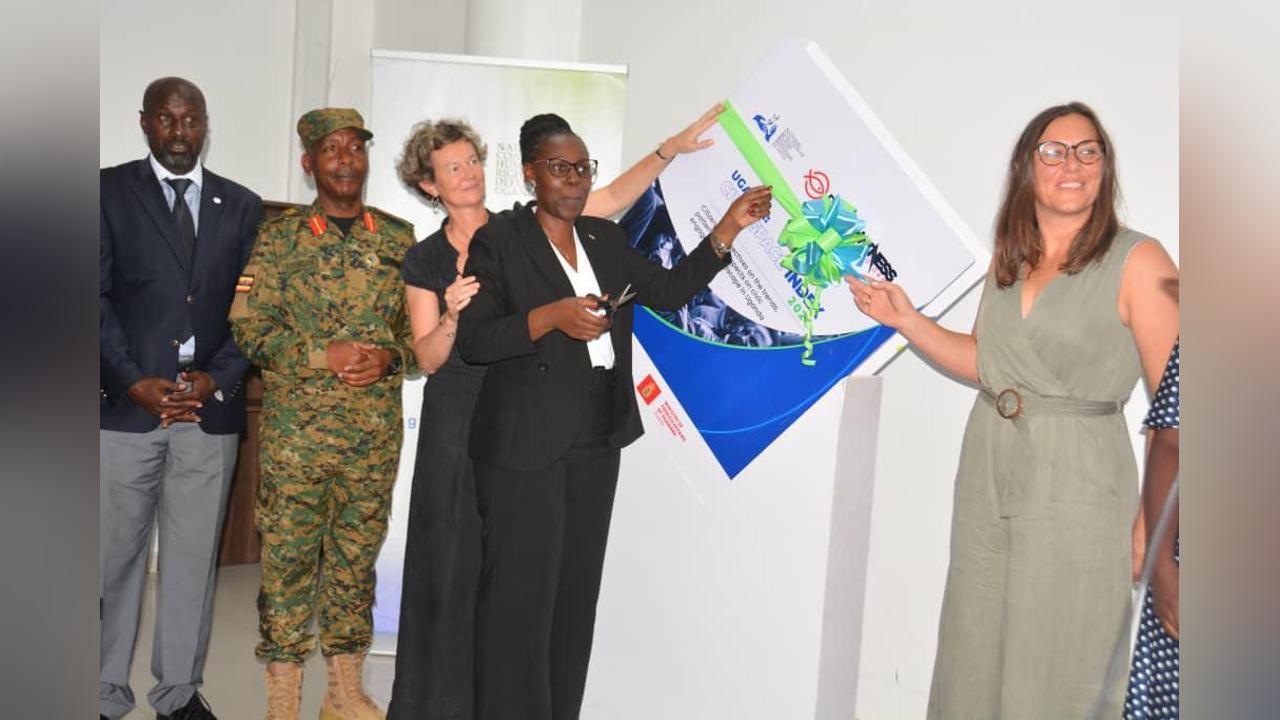Africa-Press – Uganda. Mounting fear and declining trust in political processes are driving Ugandans away from civic engagement, according to the newly released Civic Space Index Report 2024 by the National Coalition of Human Rights Defenders Uganda (NCHRD-U).
Human rights defenders are sounding the alarm over increasing restrictions on civil liberties, urging urgent reforms to protect democratic freedoms ahead of the 2026 general elections.
Presented in Kampala by lead researcher Dr. James Nkuubi, the report reveals a worrying trend of civic withdrawal among Ugandan citizens.
According to Nkuubi, many respondents cited fear of reprisal, limited trust in institutions, and a perceived lack of impact as key reasons for disengaging from civic activities.
“This isn’t a product of someone seated in an air-conditioned office doing desktop research,” Nkuubi emphasised.
“We actively engaged citizens across the country using pre-tested tools—both online and through face-to-face interactions—to understand how they perceive civic space in 2024.”
The report, titled Citizenry Perspectives on Trends, Patterns and Prospects on the Civic Engagement Landscape in Uganda” , offers critical insights into how civil society, human rights defenders, and ordinary Ugandans are navigating an increasingly constrained civic environment.
Among its innovations is the introduction of a “trust versus fear” metric aimed at explaining citizens’ withdrawal from civic and political life.
“Based on citizen responses and lessons from global civic space indexes, we incorporated this measure to interrogate the motivations behind political disengagement,” Nkuubi said. “It sheds light on the psychological and systemic barriers to participation even though the Constitution under Article 38 guarantees civic involvement.”
The study assessed civic space across 13 thematic areas, including freedom of expression, association, access to information, and political rights especially for marginalised groups. Researchers used both stakeholder engagement and national and international datasets, storing the results in a digital portal to track civic trends over time.
Dr. Nkuubi stressed the timing and relevance of the report, noting its predictive value just months ahead of the 2026 elections.
“It doesn’t just reflect the current situation; it also reveals anxieties and expectations heading into the election season,” he said.
According to the report, Uganda’s civic space continues to face immense pressure, with growing constraints on freedoms of expression both online and offline access to information, media rights, freedom of assembly and association, and political participation.
“This report comes at a crucial time when the need for protecting and expanding civic space in Uganda has never been more urgent,” said Robert Kirenga, Executive Director of NCHRD-U.
“The Civic Space Index is a vital tool for policymakers, civil society organisations, development partners, and the public to better understand the realities on the ground, promote inclusive development, and shape strategies that safeguard the voices and freedoms of all Ugandans.”
The report also spotlights the resilience of civil society actors and includes policy recommendations aimed at improving civic engagement and human rights protections. But the challenges remain steep particularly for environmental rights defenders.
Hussein Kato Muyinda, Executive Director of Papa Rights Initiative, noted that environmental activists, especially youth, have been disproportionately targeted in recent crackdowns.
“Most of those arrested are students protesting the East African Crude Oil Pipeline (EACOP) project,” Muyinda said. “The report clearly shows the repression is hitting hardest among youth aged between 25 and 30.”
Papa Rights Initiative, a member of the NCHRD-U, advocates for environmental protection using legal tools. Muyinda highlighted how young activists including TikTok influencers who use digital platforms for civic expression are increasingly becoming targets of surveillance and arrest.
“This is not just about protests in the streets. The state is now clamping down on online spaces, silencing those who use social media to advocate for environmental justice and civic freedoms,” he said.
In May alone, between 15 and 18 youth environmental activists were detained, contributing to a total of over 100 arrests related to environmental activism this year.
The report further underscores a pattern of repression affecting freedom of expression, assembly, and association across the country. Activists have called for immediate interventions from human rights bodies and international partners to safeguard civic space.
Speaking at the report’s launch, Nassar Bira Kiwanuka, Team Leader at Administration for Development and Peace, raised concern over the stark disparity between urban and rural responses to civic rights violations. He warned that up-country actors are at significantly higher risk and often face limited avenues for redress.
“In places like Hoima, for example, when political or civic actors are picked by drones, it takes days before their disappearance is even noticed. One such incident took three days before we confirmed that the activist had been taken,” Kiwanuka said.
The term “drone” is widely used in Uganda to refer to unmarked vans allegedly operated by security agencies to abduct individuals, particularly during politically tense periods.
While acknowledging the importance of the Civic Space Index, Kiwanuka emphasised its role in creating visibility and awareness among rural-based human rights defenders.
“This report doesn’t only highlight the threats it creates awareness that helps up-country actors understand and respond to the realities of limited civic freedoms. It also allows us to engage both state and non-state actors from a more informed position,” he said.
The report, whose full findings are housed in an online data portal, addresses critical issues including misuse of state security agencies, enforced disappearances, suppression of dissent, and systemic distrust of institutions.
Human rights organisations have long accused the Ugandan government of using extra-judicial tactics to silence critics especially during electoral periods. The government, however, continues to deny any involvement in illegal abductions.
As the country moves toward the 2026 general elections, the Civic Space Index serves as a sobering reminder of the challenges facing Uganda’s democratic journey. The report urges urgent reforms to ensure civic freedoms are upheld, public trust restored, and citizen participation revived.
For More News And Analysis About Uganda Follow Africa-Press






